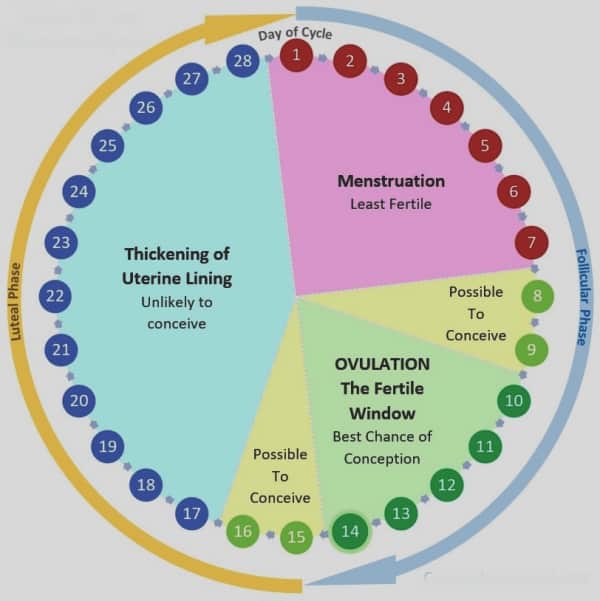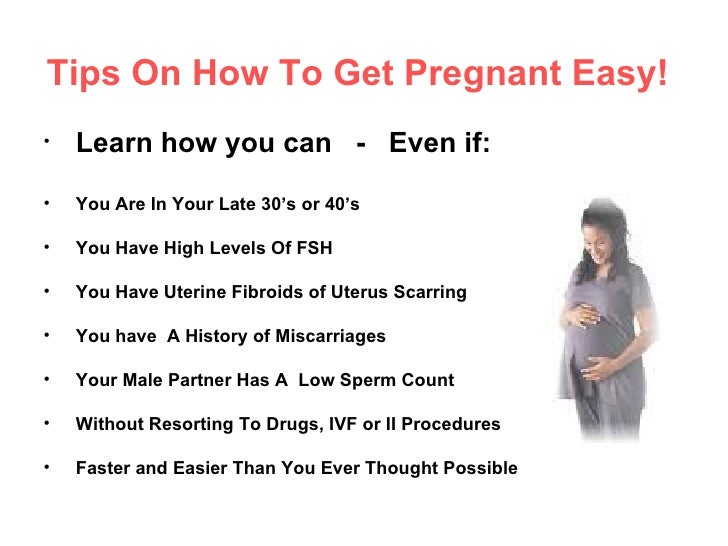The Of Why Can't I Get Pregnant The First Time
Table of ContentsThe Why Can't I Get Pregnant If Everything Is Normal Diaries7 Simple Techniques For Why Can't I Get Pregnant The First TimeWhy Can't I Get My Girlfriend Pregnant Things To Know Before You BuyThe smart Trick of Why Can't I Get Pregnant After Tubal Reversal That Nobody is Talking About
 Why Can't I Get Pregnant The First Time Fundamentals Explained
Why Can't I Get Pregnant The First Time Fundamentals Explained
One study revealed that "females who took in more than the equivalent of one cup of coffee daily were half as likely to conceive, per cycle, as ladies who drank less." Rather, drink decaffeinated or half-caffeinated coffee, and remember there is caffeine in tea, pop and chocolate as well.
Some lubricants may prevent sperm motion by 60 to 100 percent within 60 minutes of sexual intercourse. In other words, these tiny swimmers can't win the race and reach the reward if they can't move. If you aren't getting sufficient sleep every night, no quantity of "catch up" snooze time can offset lost rest.
Rest for at least seven hours per night and be aware of your body's needs. One study showed ladies with infertility felt as distressed and depressed as those detected with cancer, hypertension, or recuperating from a cardiovascular disease. If you're concerned about your fertility, don't go at it alone. Speak with your partner, see a counsellor or discover a support system with people on the same boat.
The 25-Second Trick For Why Can't I Get My Girlfriend Pregnant
There is no need to "conserve up" sperm for sex throughout ovulation, professionals state, or have intercourse numerous times daily leading up to ovulation. Don't let attempting to conceive disrupt having an enjoyable sex life. Aim to make love at least 2 to four times weekly or whenever you and your partner are in the mood.
Infertility impacts an estimated 10 percent of females. Research studies have actually found that about a 3rd of infertility cases are because of female infertility, another third to males, and the rest to problems affecting both partners or a cause that might remain a secret. Many aspects can add to female infertility.
Issues with ovulation are the most typical cause of female infertility. Without an egg being released-- the extremely meaning of ovulation-- you can't have a pregnancy. An absence of ovulation is regularly due to: An imbalance of hormonal agents causes a disruption in the regular ovulation procedure. With this condition that affects females under 40, your ovaries aren't functioning as they need to be during your fertile years.
5 Easy Facts About Why Can't I Get Pregnant After Tubal Reversal Described
Obstructed fallopian tubes can be traced to: Endometriosis, the condition defined by the development of endometrial tissue beyond the uterusSurgery for an ectopic pregnancyInfertility in females might be because of problems with the uterus itself or with unwanted developments within the uterus, such as uterine fibroids or polyps. Uterine fibroids, for example, are usually benign however can grow on the uterine walls.
Some common signs that might indicate female infertility consist of irregular menstrual periods, not having any periods at all, or extreme pain connected with your durations. If you have any of these symptoms, if you understand that you have a condition that can affect fertility like endometriosis or pelvic inflammatory disease, or if you have been attempting unsuccessfully to get pregnant for one year (or for 6 months if you are 35 or older), it's time to talk with your physician.
Some of the more typical tests utilized in the diagnosis of infertility in females are: The primary step in examining your fertility is typically tracking when you ovulate. To evaluate your ovulation, your doctor might advise you to keep a record of your menstrual cycles, chart your body temperature, use a urine test set, or have periodic blood tests; she or he even may monitor your hair follicle development through ultrasound.
Everything about Why Can't I Get Pregnant If Everything Is Normal
A small surgical instrument called a laparoscope-- a tube fitted with a small cam-- is placed in your abdominal area so that the doctor can imagine any problems impacting your fallopian tubes or uterus. Your medical professional may order blood tests to examine for irregular levels of hormones that contribute in fertility problems.
Advances in infertility treatments might help many females get pregnant. Alternatives include: Medication, such as fertility drugsSurgery, such as getting rid of endometrial developments or fibroidsArtificial inseminationOther assisted reproductive techniques such as in vitro fertilization (IVF) Oftentimes, you can not manage how fertile you are, but you can increase your opportunities of having the ability to have a healthy infant by: Not smokingAvoiding excessive alcohol useManaging your stressMaintaining a healthy diet plan and a healthy weightProtecting yourself versus sexually sent diseasesBeing unable to develop can cause a rash of feelings, including frustration.
 The Single Strategy To Use For Why Can't I Get Pregnant After Tubal Reversal
The Single Strategy To Use For Why Can't I Get Pregnant After Tubal Reversal
Infertility is not being able to end up being pregnant. Infertility is defined as not being able to end up being pregnant after having regular intercourse (sex) without birth control after one year (or after six months if a woman is 35 years or older). Fertility suggests being able to end up being pregnant (conceive), and it includes many steps, which should work perfect for a female to conceive.

 Log in with Facebook
Log in with Facebook 
 How Why Can't I Get Pregnant If Everything Is Normal can Save You Time, Stress, and Money.
How Why Can't I Get Pregnant If Everything Is Normal can Save You Time, Stress, and Money. Things about Why Can't I Get Pregnant The First Time
Things about Why Can't I Get Pregnant The First Time The 8-Second Trick For Why Can't I Get My Girlfriend Pregnant
The 8-Second Trick For Why Can't I Get My Girlfriend Pregnant How Why Can't I Get My Girlfriend Pregnant can Save You Time, Stress, and Money.
How Why Can't I Get My Girlfriend Pregnant can Save You Time, Stress, and Money. The Best Guide To Why Can't I Get Pregnant
The Best Guide To Why Can't I Get Pregnant The 5-Second Trick For Why Can't I Get Pregnant Right Away
The 5-Second Trick For Why Can't I Get Pregnant Right Away Our Why Can't I Get Pregnant Diaries
Our Why Can't I Get Pregnant Diaries What Does Why Can't I Get Pregnant Right Away Do?
What Does Why Can't I Get Pregnant Right Away Do? What Does Why Can't I Get Pregnant Right Away Do?
What Does Why Can't I Get Pregnant Right Away Do?




